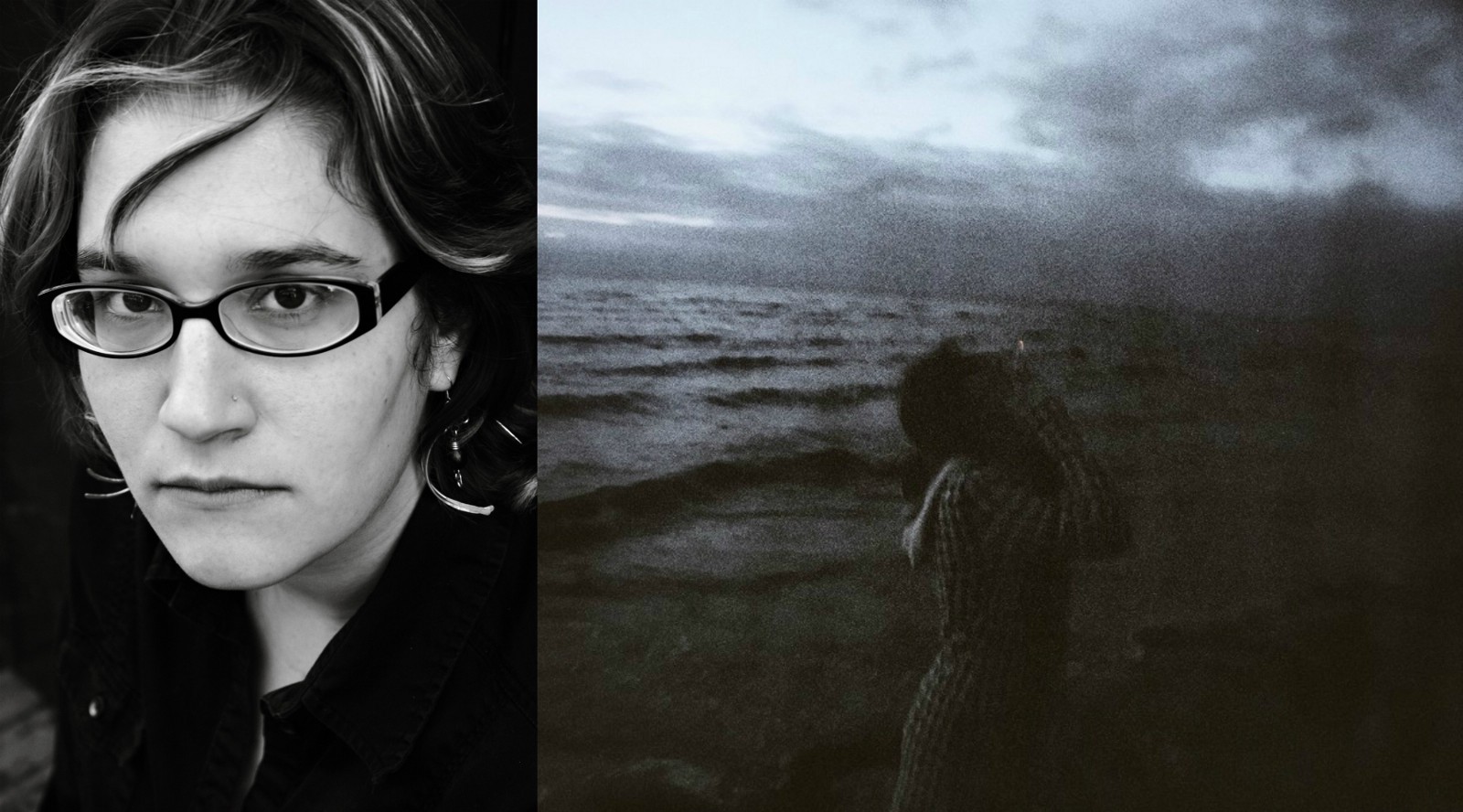interviews
Alone And At The Edge Of Everything: A Conversation With Carmen Maria Machado

Carmen Maria Machado is the author of the novella Especially Heinous: 272 Views of Law & Order SVU, published in The American Reader. Reimagining the popular television show entering its 17th season, the novella is the perfect introduction to Carmen and her work. Especially Heinous is structured like TV listings and is part ghost story, part urban fantasy. Its true horror, however, does not lie in the beating heart of the city or the dead girls with bells for eyes; it lies instead in the violence and voyeurism that connect this fictionalized fiction to our own, very real world.
A graduate of the Iowa Writers’ Workshop and the Clarion Science Fiction & Fantasy Workshop, Carmen Maria Machado has been nominated for a Nebula Award, a Shirley Jackson Award and was long-listed for a Hugo Award this year. Her work is a powerful antidote to the Sad Puppies, who have tried to uphold strict guidelines for what fantasy and science fiction cannot be and do — namely, include diverse perspectives and experiences. Bleeding the real into the fantastic and experimenting with unconventional form, her stories stand alone to prove them wrong.
In a series of conversations over e-mail and in-person, I spoke with Carmen Maria Machado about the uses of form, fantasy, and sexuality in literature.
Rebekah Bergman: In your short story “Inventory,” you itemize the protagonist’s memories while her present situation remains in the background. In this way, you foreground the more “realistic” elements of the narrative. How does your work as a photographer influence your fiction? How do the “real” and the “unreal” relate and/or intersect in this story and in your work in general?
Carmen Maria Machado: I love it when writers permit the reader to see behind the foreground, or to be able to look around the narrator. This is especially true with stories with unreliable narrators; Lolita is a great example. A careful reader can see around Humbert Humbert and recognize the horror of what is happening to Dolores. But the horror of what is happening to her is heightened by his arch, academic register and his tendency toward bloviating and euphemism. (I think this is where some types of horror writing fail for me: the writer isn’t interested in these kinds of contrasts, or using realistic elements to heighten the horror.) So when it comes to non-realism, I like to use the real to access the unreal — the foreground as a frame for the background — and the unreal to access the real — the background as a frame for the foreground.
I don’t doubt that this interest stems from my background as a photographer. I’ve always been surprised and intrigued by how much the visual medium can get away with in the background. Children of Men–one of my favorite films in the whole world–has so much gorgeous worldbuilding going on behind the main action. The whole movie is about what details are being foregrounded and backgrounded in turn, like a photographer is adjusting her focus or depth of field…This visual effect can happen unintentionally, too. The crudest examples I can think of are those memes online where the intended effect is to give one immediate impression and then a second shock or surprise. For example, there’s one that’s a selfie of a sexy woman, but after you stare at it for a moment, you realize there’s poop in the toilet behind her. Or the creepy version, where there’s a photo of a bunch of women in a hot tub, and after you examine the image more closely, you see glinting eyes in the darkness of the window behind their smiling faces. Whether the effect is “Ha ha!” or “Oh, shit,” the background informs the foreground, and the interplay between them is either comical or terrifying (or both).
One nightmare in the midst of a thousand nightmares feels less important, somehow; a nightmare on a day when everything was otherwise fine…stands out.
So with “Inventory,” yes, it’s possible for a person to be living her life parallel to a deadly outbreak until it’s right up at her door — hell, this happens every day. As a recent example: weren’t you just living your life while Ebola killed thousands of people? And doesn’t everyone love to talk about where they were when 9/11 happened? I think people do this this because they (subconsciously, mostly) understand that the mundane details of their life contrast spectacularly with the horror of that event. One nightmare in the midst of a thousand nightmares feels less important, somehow; a nightmare on a day when everything was otherwise “fine” or “normal” (from the speaker’s frame of reference, anyway) stands out.
RB: Behind that list in “Inventory,” a woman is fleeing a deadly outbreak. There have been several recent books that follow the last women of the apocalypse. I recently read Laura van den Berg’s novel Find Me, for example. Then there’s Emily St. John Mandel’s Station Eleven. “Inventory” fits this too. What do you think is drawing readers and writers to the post-apocalyptic woman?
CMM: For me, part of it probably has to do with the fact that I really love science fiction and horror movies. But when I go to the movies, I don’t expect to see a female character central to the story or even represented in a non-tangential way. It’s just so rare. When it does happen, it’s a shock. Recently I saw The Babadook and It Follows. They were so refreshing because they were about women and women’s experiences and that’s such a rarity. In science fiction films too, there’s only a handful with women at their center…So it’s a real pleasure and treat when it happens. In fiction, the last man on earth idea has been done a million times. Possibly with a female author at the helm, they think, “Well I’m going to tell this story the way I want to tell it.”
I initially started “Inventory” because I wanted to write an essay about my own lovers, but I didn’t feel ready to do that yet. I started writing down fictional and nonfictional experiences. Then I realized I could tell a story this way, and it occurred to me that something else could be happening in the background. Maybe something really huge is happening that we’re only seeing through these little lenses. And you know, she’s not really the last woman on earth but it feels that way by the end. She’s just alone and at the edge of everything.
RB: A lot of these post-apocalyptic woman’s narratives also feature lists and list-making. In Find Me, the protagonist is constantly coming up with lists. They’re not formatted with bullets, but she’ll say something like, “Here’s everything I know about Tennessee.” This isn’t a new trend either. There’s David Markson’s Wittgenstein’s Mistress, which is basically a catalogue of culture written by a woman who might be the last person on the planet. Your story “Inventory” is an actual inventory. Why do you think the list is used in these end-of-the-world scenarios?
CMM: Lists give order to things. It makes sense that somebody who experiences great trauma would try to put order to that trauma. Lists are a way of trying to regain control, organizing these fragments to make sense in some way to you. The irony is that it’s an illusion of control. If you’re really the last person left on earth, you’re fucked. The world is over. You’re alone. But there’s a fragment of your psyche that can be put into these lists.
I find list-making very pleasurable myself. I handwrite my lists even though I do most things on the computer. I don’t even handwrite my stories, but I handwrite lists. It just helps. And that’s true of my own ordinary life, which is not apocalyptic in any way. But if it was apocalyptic, I imagine that’s exactly what I would be doing — creating an artifact, creating a memory. Maybe if the world is ending, I’d think, “Well, if I’m the last person to know anything about Pennsylvania. I might as well write it down because who else is going to remember it?”
RB: There are a lot of writers who are working in and with the blurred space between realism and fantasy or science fiction right now. You’ve cited Kelly Link and Karen Russell as two influences, and I see something similar happening in your fiction as in theirs. It seems — to me, anyway — different from what is happening with many of the male writers working in this space. I wondered if you could speak to that. Do you see a similar motive or method in your work and the work of Link, Russell, and other women? Where does that come from?
CMM: I have a theory about why many women might turn to this kind of fantasy. It’s just a theory. But we live in a society where women’s experiences are devalued. I think, because of that devaluing, it’s possible that female writers seek ways to represent their experiences that are more subtle or less easy to pin reality on. So if a woman writes a mimetic story about sexism that she’s experienced, people might be like, “Okay, this is a woman writing about sexism.” But if she approaches it in an unreal way or in a metaphorical way, it’s going to fly under the radar a little more.
…it’s about that process of rediscovering your own interiority after trauma. That was the way I did it, the only way I knew how to do it.
In a lot of my fiction I’m talking about sexual violence, sexuality, women’s experiences and my experiences as a woman. The first story — the story that I consider the one that started the way I write now — is called “Difficult at Parties.” It’s about a woman who is recovering from a rape and she discovers she can hear the thoughts of actors in porn movies. I was trying to approach a story about survival after sexual violence and how that process can look. But I felt like I didn’t know how to address it in any way that wouldn’t feel cheesy or saccharine or obvious except in this way where it becomes about interiority versus exteriority. After her assault, she can’t hear her own interiority, but she can hear the interiority of the people she’s watching. At the end of the story she films herself having sex with her boyfriend and then watches the tape of herself. So it’s about that process of rediscovering your own interiority after trauma. That was the way I did it, the only way I knew how to do it.
RB: So approaching a story with or through the fantastic can be a way to address a real experience without it becoming “just a women thing.”
CMM: Right. I suppose there is a whole range of people and experiences that would be true for. Certainly people of color may have a similar approach or queer folks. It sucks that we live in this world where an artist whose identity resides outside of traditional structures of power often have their work reduced to “just a [insert identity here] thing,” but it’s the reality.
RB: It might not even necessarily be a woman’s experience or a queer experience though. I’m thinking of Aimee Bender’s story “The Rememberer,” where it’s just an emotional experience — a fairly common one — that becomes embedded in a complex and surreal metaphor. She puts that emotion in a different place so that it resonates in a new way.
CMM: I think that’s also true of experimentally formed fiction. Experiments with form can cut sentimentality in half. Matt Bell has a story called “An Index of How Our Family Was Killed” that I teach to my students. You can read it online. It’s excellent. It’s a story about a man whose mother, father, and brother were all killed in separate instances. It’s realism, but it’s written in sentences that are alphabetized like an index. You can imagine that if it were traditionally formatted, it would be just a guy who’s experienced all this loss and is falling apart and could become tiring very quickly. But by putting it in that form, it’s a fresh way of approaching the material. Suddenly this story becomes immediate and tragic but not sappy and not overly sentimental. So you’re right, I think. Re-approaching the material gives it a new shape. It’s a way of going at it differently, and it can do some work in terms of how the material comes across.
RB: Going back to the idea of women using the fantastic or the unreal to tell a story about sex and sexuality. I’m thinking of the more conventional ways to approach that material now and Phillip Roth comes to mind. He’s often dealing with sex so overtly on the level of realism. There’s a wide range of where and how sexuality can exist in a story — perhaps depending on who wrote it. Are there male writers who are approaching these themes in that same subtle way you described? Are there women writers who approach them more overtly?
CMM: I’ve been wondering about that. When I first read Roth, I asked all my friends who liked him if they knew of any female authors who wrote about sex the way Roth did. They had no answer. Sabbath’s Theater — of all the books of his that I’ve read, that was the only one I liked — has a really interesting, very sexual female character in it. But, she’s dead, so there’s that. That book is so raw and sexual the whole way through, and as I read it I wondered, “Where are the women writing books like this?” I mean, where are the women writing and publishing novels and stories that are full of explicit sex that aren’t being marketed as erotica or woman’s fiction or romance — not that there’s anything wrong with those genres, they’re just not what I’m looking for — where women and their bodies and stories are centered and, you know, alive? I want to read about that. I also want to write about that.
There’s no doubt that we’re culturally more comfortable with men writing explicitly about sex than women…
Nicholson Baker, who I adore, also has books that are all about sex. His novels fall into these loose categories, and some of these are his “sex books,” like Vox and House of Holes. And they’re really awesome — funny and tender and sexy and weird and beautiful and great. I just want to know where are the women who are writing about sex in that way? Or writing about it in ways that are uncomfortable or disturbing? I know they exist, I just don’t run into them as often as I’d like. There’s no doubt that we’re culturally more comfortable with men writing explicitly about sex than women, and I think that this selectively sexist prudishness has probably resulted in a lot of unwritten or unsold or unpublished or mislabeled female-authored literary fiction about sex and that makes me so sad and angry.
RB: Does anyone have an answer?
CMM: Not yet. I’m sure I’m missing some of them — I mean, I know I am — because they don’t get nearly the same amount of publicity and cultural clout and literary cred, and I think often they get filed away as “romance” or “erotica” or other genres. But I’m always on the lookout for contemporary female literary authors with whole novels that are dedicated to discussions of sex like Roth or Baker. . .
The only author I can think of off the top of my head who I’ve read recently is Alissa Nutting. She’s so good, I love her work. She’s only published two books so far, so I don’t know if explicit sex is going to continue to be part of her body of work…But her novel Tampa is a good example. It’s very sexually explicit, and because it’s about a female ephebophiliac, very discomforting. When it came out, I heard Tampa described as the female version of Lolita, but it isn’t exactly Lolita because in Lolita, everything is so understated. Tampa is more explicit in every way. Sexually explicit, and also the protagonist is just so much more nakedly evil, though still complex. But she doesn’t try to justify what she’s doing with florid language. It’s a novel about power — really interesting. Upsetting, but interesting.
RB: So we can name one book by a woman that has explicit sexuality without making the woman the object of desire or being considered erotica…I can’t think of any others.
CMM: I’m always looking for them. When you find any, let me know.









